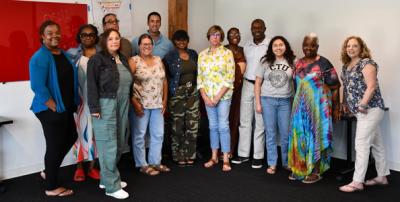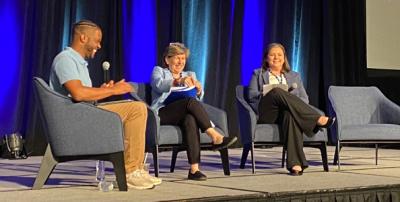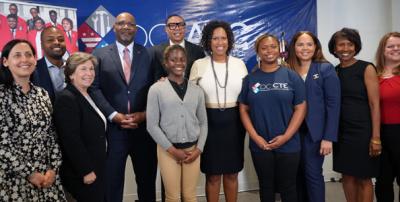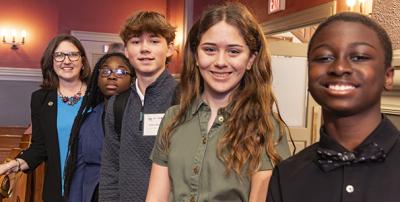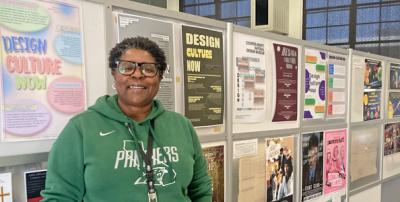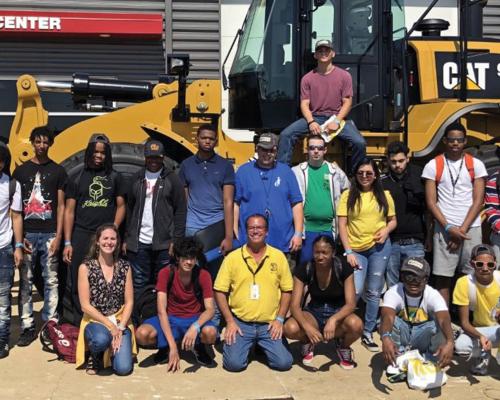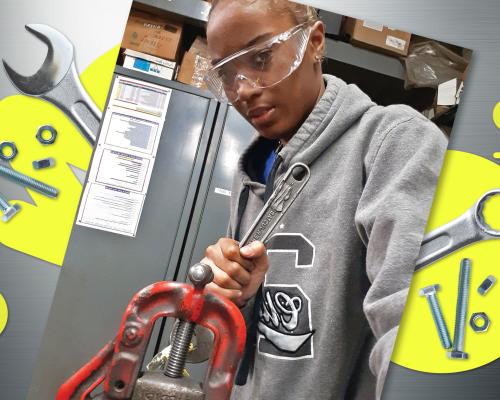Real Solutions for Kids and Communities: Experiential Learning
We believe in providing all children the opportunity to learn by doing. Experiential learning, including career and technical education, engages them in deeper learning, provides them with real-world, real-life skills, and boosts academic achievement. Career and technical education is experiential learning at its best, and it prepares students not only for traditional trades programs but also for in-demand careers in healthcare, information technology, skilled manufacturing and more.
Blogs and Articles
We know that good career and technical education programs with plenty of hands-on learning and mentoring can lead to fulfilling careers for young people and boost local economies as well. In this article, you’ll hear directly from students whose inspiring experiences in the construction trades are testimony to the potential of a well-run CTE program. You’ll also hear from their teacher and learn his surprising take on the most important thing students learn from his program.
Just when the teacher shortage is at its worst, programs that prepare new teachers to fill the gap have been shuttered by the Trump administration: In February, the Department of Education abruptly axed $600 million in Teacher Quality Partnership and Supporting Effective Educator Development grants established by Congress specifically to bolster the teacher workforce. Read this AFT Voices account from members who are feeling the cuts—and the teacher shortage—in their North Florida schools.
The shortage of educators in Nevada is severe, but at the same time there are people right in the schools who would love to become teachers and fill the gap for students. Kenny Varner, a professor at the University of Nevada, Las Vegas, shares the perfect solution in this AFT Voices post: the Nevada Forward program fast-tracks education students through a year of teacher training, at no cost, and provides support for three years after that. The result is high graduation rates, high retention rates and more teachers in Nevada classrooms.
The AFT is making a significant impact on career and technical education by equipping educators with the skills and credentials to become OSHA-authorized trainers. Through the Occupational Safety and Health Administration’s Outreach Training Program, teachers are empowered to deliver essential safety and health education to their students, preparing them to navigate workplace hazards with confidence. This summer, a group of career and technical educators, all members of the Chicago Teachers Union, participated in this transformative training.
As the nation watched the Democratic National Convention, it may have looked like one enormous pep rally, with inspiring speeches to pump up enthusiasm, silly hats bobbing in the crowd and shirtfronts encrusted with political buttons. But outside the phalanx of TV cameras, delegates and leaders—including many from the AFT—were shaping policy, including on education. Such was the case Aug. 21 when a panel of politicians, advocates and labor leaders sat down to discuss the most important aspects of career and technical education, and how we can continue to encourage its growth.
At “AI in Education and Beyond,” a joint AFT-Microsoft conference in Chicago Aug. 11-13, participants voiced joy and fear in the same breath: Excitement at the learning options artificial intelligence opens versus concern for student safety. Interest in how much mindless administrative work AI can save versus fear it will replace vital human expertise. Preparing kids for an AI-infused workplace versus alarm at the ever-widening digital gap. But from early adapters to skeptics, agreement was clear on one thing: An educator-labor voice in AI is essential—and the AFT’s unlikely collaboration with Microsoft may help us get there.
In another indication that public-private partnerships are key to making career and technical education work, Washington, D.C., education leaders are celebrating a $9.5 million investment from Bloomberg Philanthropies that will go toward the DC Healthcare Academy—expanding one site and creating another learning center for healthcare professions in underserved areas of the city. “We are thrilled and grateful [for] the investments that are being made to reimagine the high school experience for D.C. high school students,” says Washington Teachers’ Union President Jacqueline Pogue Lyons. “This just shows what we can do when we all work together.”
For AFT member Clare Berke, hands-on learning goes way back: She still remembers the “newspaper” she created in class with a friend when she was a fifth grader. Today she teaches her own high school journalism students through a range of opportunities to “try on” a career that has always inspired her. They recently met the governor of Maryland, reported on an AFT event about experiential learning and began to pursue an investigative project about problems in a nearby school. “When our students are part of experiences that pique their interests, involve their daily lives, and prepare them for what comes after high school, the whole community benefits,” she says.
A constellation of experiential learning proponents, from the governor of Maryland to the president of the AFL-CIO as well as AFT President Randi Weingarten and the AFT teachers most immersed in this work gathered at a conference March 21 to showcase the power of hands-on learning and strategize on how to expand its reach. Co-sponsored by the AFT, the Albert Shanker Institute and the Center for American Progress, the convening underscored the potential for engaging students and creating multiple pathways to fulfilling work lives through career and technical education.
When Letecia Miller started teaching graphic arts in the Los Angeles school district, her school had substandard equipment and not much money to upgrade. But Miller had a vision, and after years of persistence she secured the grants she needed to build an impressive graphic design studio for her students. The effort, she says, was worth it: Here’s her story about how career and technical education can be a powerful pathway for education in communities like hers.
More than 100 people from 19 school districts gathered in New York City for the annual Center for School Improvement Leadership Institute Jan. 18-20. Braving frigid temperatures and snowy forecasts, these educators and administrators marked the 31st year of a conference known for bringing together teams of different stakeholders, and creating space for them to hammer out solutions specific to the challenges their students and communities face. Co-sponsored by the AFT and the United Federation of Teachers, this year’s conference focused on career and technical education, one of the top “real solutions” in the AFT’s campaign for supporting schools and communities.
Video Playlist
American Educator
I have been a skilled trades worker for almost half of my life, but I never thought about teaching my craft to students. Then in May 2014, an opportunity to use my experience to help change students’ lives practically landed in my lap. I haven’t looked back since.
I was introduced to career and technical education (CTE) when I was a high school senior questioning what I wanted to do with my life after graduation. I wasn’t sure college was an option, but I’d spent most of my junior and senior years looking for jobs with no success. It seemed nothing was turning out right for me.
There is a growing interest in STEM (science, technology, engineering, and mathematics) units and projects in the early childhood and elementary years.1 As former teachers turned researchers, we welcome this nascent movement, but because of our experience we suggest reflection and caution—particularly regarding the role of math in STEM education.




